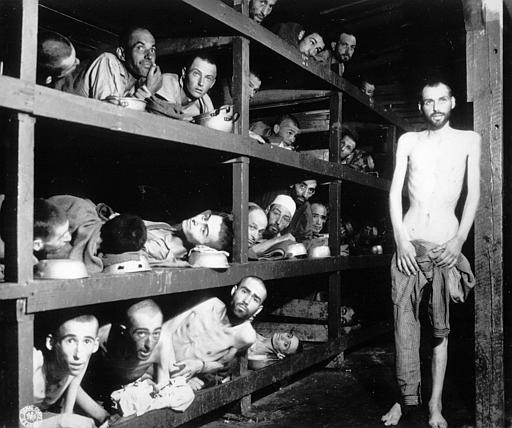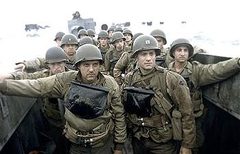
Elie was close to losing his father on the train ride over. Elie forced his father, who in turn forced himself to come back from his unconsciousness. Even now, the Jews treat their own people as the Nazis do. They "Grabbed him by the head and feet and threw him from the wagon, like a sack of flour." These were Jewish volunteers!! They receive no food as they live off the snow. The Germans throw bread at them only to watch the spectacles unfold around them.
Now Elie watches his father losing strength and life. He wines for help and food, but can no longer help himself. No doctors help and he becomes worse and worse. He is also reminded of the survival of the fittest in concentration camps, but he still helps his father. When his father did pass due to the beating of guards, Elie can not weep at all. He can only think to himself "I'm free".
It is horrible to see the transformation of the Jews during this time. They treat each other with no respect, ignoring the community. A son kills his father for a crumb of bread, and it only gets worse. The Blockalteste reminds Elie "Don't forget that you are in a concentration camp. In this place, it is every man for himself, and you cannot think of others. Each of us lives and dies alone." Even though this goes completely against Jewish belief, the Jews act like this. They refuse to be another statistic for future people to see.







